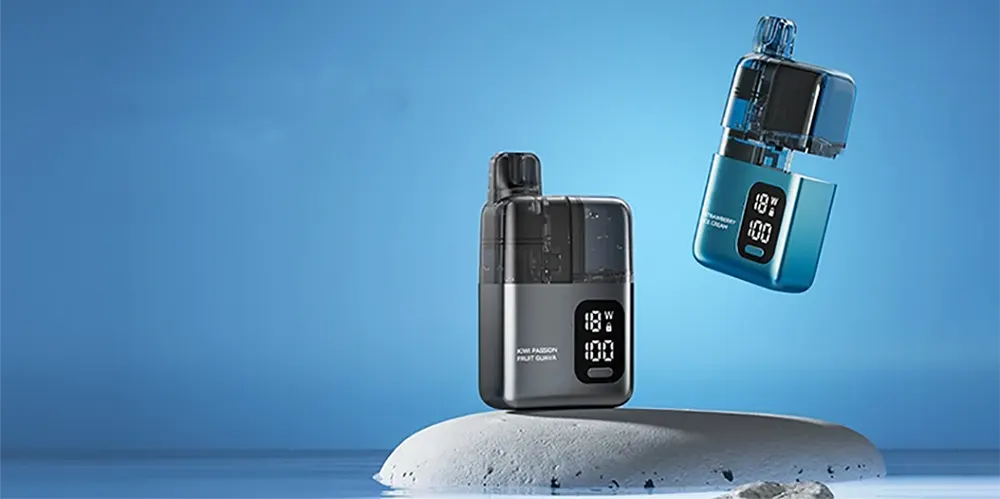Las normas relativas a los cigarrillos electrónicos varían considerablemente en las distintas partes del mundo. En algunos países, vapear se considera una forma menos dañina de fumar y, por lo tanto, está permitido, mientras que en otros está totalmente prohibido. Este artículo tiene como objetivo presentar las nuevas regulaciones mundiales sobre cigarrillos electrónicos en los principales países para 2025.
1. Estados Unidos (Regulaciones de la FDA)
En Estados Unidos, los cigarrillos electrónicos están bajo la jurisdicción de la FDA, de conformidad con la Ley de Prevención del Tabaquismo Familiar y Control del Tabaco.
-
- Restricciones de edad: La edad mínima para comprar cigarrillos electrónicos legalmente es de 21 años.
- Revisión previa a la comercialización: La agencia debe aprobar los nuevos productos antes de que puedan comercializarse.
- Líquidos electrónicos con sabor: La producción de cartuchos con sabor está prohibida, pero los cigarrillos electrónicos desechables con sabor siguen estando disponibles para los consumidores.
La FDA sigue estando a cargo de la regulación de los cigarrillos electrónicos para garantizar su seguridad y abordar las preocupaciones de salud pública.
2. Unión Europea (Directiva de Productos del Tabaco – TPD)
La Unión Europea controla el uso de cigarrillos electrónicos mediante la Directiva sobre Productos del Tabaco (TPD):
-
- Restricciones de edad: Solo se pueden comprar cigarrillos electrónicos después de cumplir los 18 años.
- Concentración de nicotina: La concentración de los líquidos electrónicos no debe superar los 20 mg/ml.
- Publicidad: No se permiten anuncios en los medios de comunicación convencionales, y los cigarrillos electrónicos no deben anunciarse como productos para la salud.
El sistema TPD de la UE es muy riguroso en cuanto a la seguridad del producto, al tiempo que restringe el acceso de los menores.
3. Reino Unido (Regulaciones posteriores al Brexit)
El Reino Unido aplica el Reglamento sobre el Tabaco y los Productos Relacionados (TRPR):
-
- Restricciones de edad: La edad mínima es de 18 años.
- Concentración de nicotina: El máximo permitido es de 20 mg/ml.
- Publicidad: Los anuncios no deben dirigirse a menores ni incluir afirmaciones sobre la salud.
El Reino Unido mantiene una normativa firme, aunque muy positiva y favorable, por lo que los cigarrillos electrónicos se están promoviendo como un método viable para dejar de fumar.
4. Australia
Australia es conocida por tener leyes extremadamente estrictas en materia de cigarrillos electrónicos:
-
- Prohibición de la nicotina: El uso de cigarrillos electrónicos con nicotina requiere únicamente receta médica.
- Productos sin nicotina: Los cigarrillos electrónicos sin nicotina están disponibles, pero aún están regulados.
- Publicidad: La publicidad de cigarrillos electrónicos, especialmente dirigida a niños, está totalmente prohibida.
La política australiana se centra en la salud pública y trata de disuadir el consumo de nicotina.
5. Canadá
Canadá regula los cigarrillos electrónicos mediante la Ley de Productos de Tabaco y Vapeo (TVPA):
-
- Restricciones de edad: La edad legal varía entre 18 y 19 años, dependiendo de la provincia.
- Concentración de nicotina: La concentración máxima para los líquidos electrónicos es de 20 mg/ml.
- Publicidad: Los anuncios no deben estar dirigidos a menores ni contener afirmaciones sobre la salud sin fundamento.
Las normas canadienses tienen como objetivo reducir los daños manteniendo al mismo tiempo el control de la industria del vapeo por parte de las autoridades.
6. Conclusión
En 2025, las medidas mundiales sobre cigarrillos electrónicos reflejan principalmente la tendencia a mantener la seguridad de los productos y, al mismo tiempo, impedir el acceso de los jóvenes a ellos. Existen marcos regulatorios sólidos en países como Estados Unidos, la Unión Europea y el Reino Unido, mientras que Australia ha implementado restricciones más estrictas. Es fundamental que tanto las empresas como los consumidores conozcan la normativa vigente en su país si desean tener éxito en el mercado internacional del vapeo.

